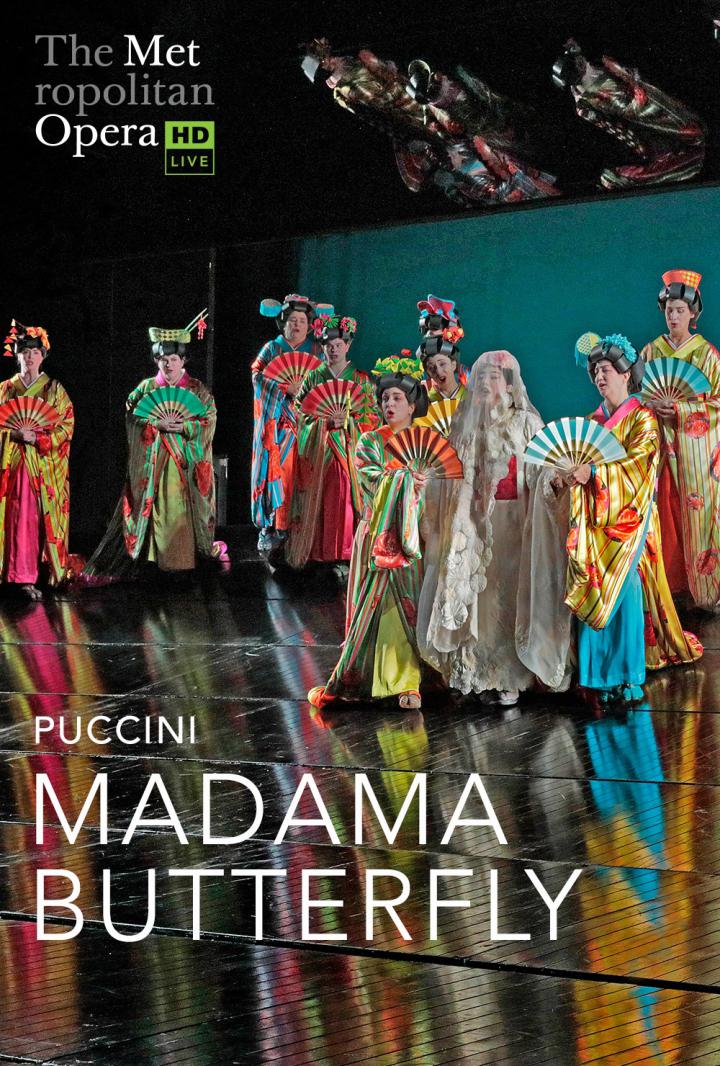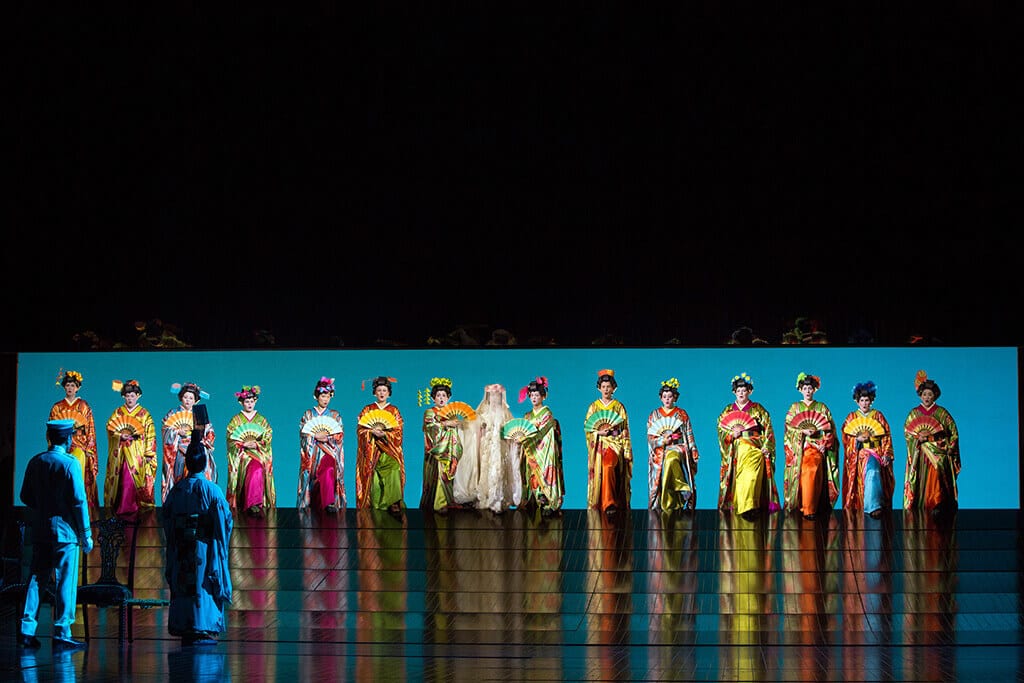


I'm not sure that the puppetry is so convincing, but as is explained in one of the interviews on the bonus track, a three- or four-year old child, who usually plays Cio-Cio-San's son, generally stands blankly on stage, where the puppet is deftly manipulated here by three veiled puppeteers to show emotion and reaction. To underscore the romance between Cio-Cio-San and Pinkerton there are glowing bubbly globes floating about the stage and sparkling lighting effects. Seen above the stage is a mirrored view of the characters and action, and this visual effect is most imaginative. With fairly sparse sets and use of puppets (Cio-Cio-San's little son is one), it's a bit unusual. After Minghella's death in 2008, his wife, choreographer Carolyn Choa, became the director of the production. It came to the Met in September, 2006 and received quite favorable reviews. He turned to opera only in 2005, creating this production, its first staging coming, however, at the English National Opera. The production is by the late Anthony Minghella, who won an Oscar for Best Director in 1996 for The English Patient. I've spoken of her dramatic skills, but her voice, too, is in superb form, soaring with passion, warm and sweet, never faltering in the difficult Second Act, and she always sings with such sensitive and intelligent phrasing.īut before I get to the other performances, let me deal with a few other essential details. I've reviewed two other DVDs of Madama Butterfly here, one on Opus Arte with Cheryl Barker as Cio-Cio-San, and the other on TDK, with Fiorenza Cedolins in the lead, and I am familiar with other (non-video) recordings, but this performance by Patricia Racette, who is a veteran of the role at the Met and elsewhere, is the most striking, the most gripping I've encountered. By opera's end, you're nearly breathless and sweating from the pain Racette conveys in her character's tragic fate. Patricia Racette is clearly the star of the show, becoming such a convincing Cio-Cio-San in the way she exudes the teenaged geisha's innocence, submissiveness and all-consuming naïve love for Pinkerton. You're apt to remember it at least as much for the splendid dramatic skills of the players as for their excellent singing. This is a heartrending, gripping account of this Puccini masterpiece.


 0 kommentar(er)
0 kommentar(er)
